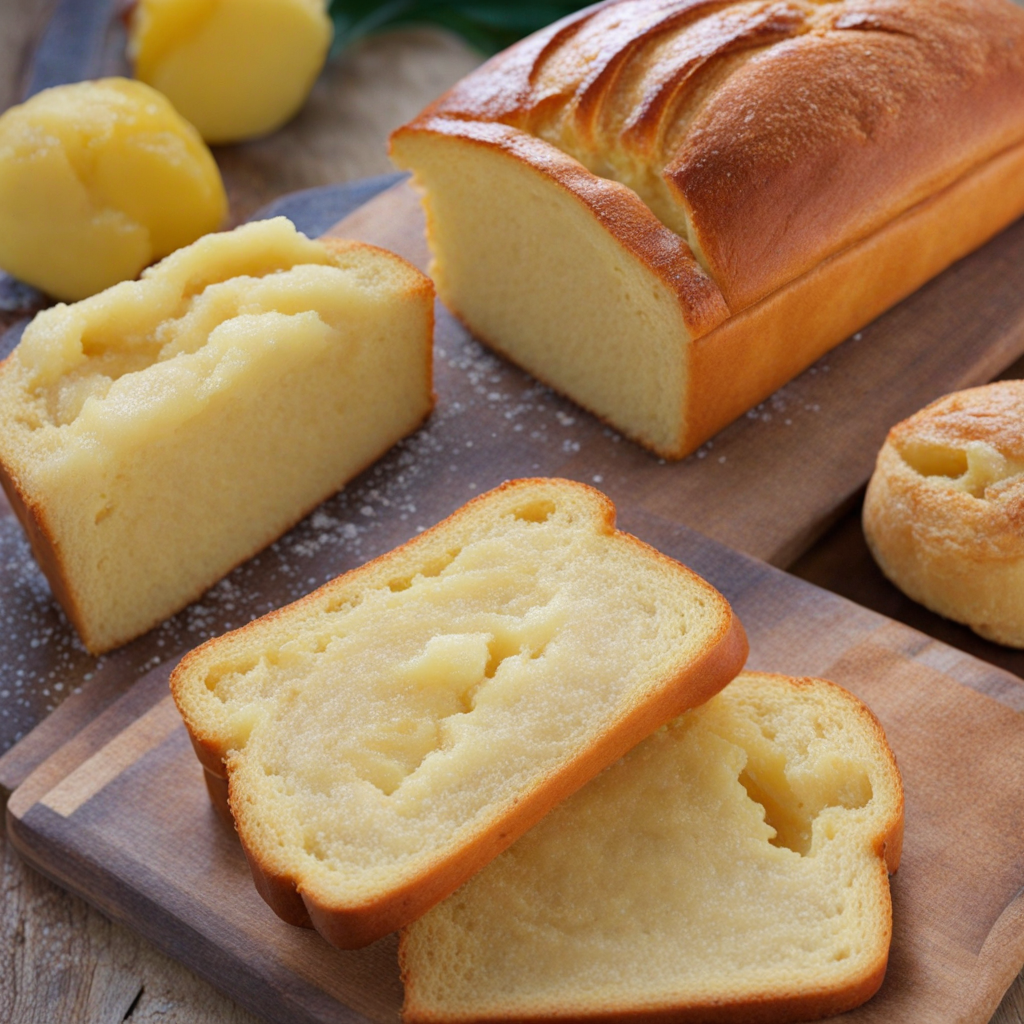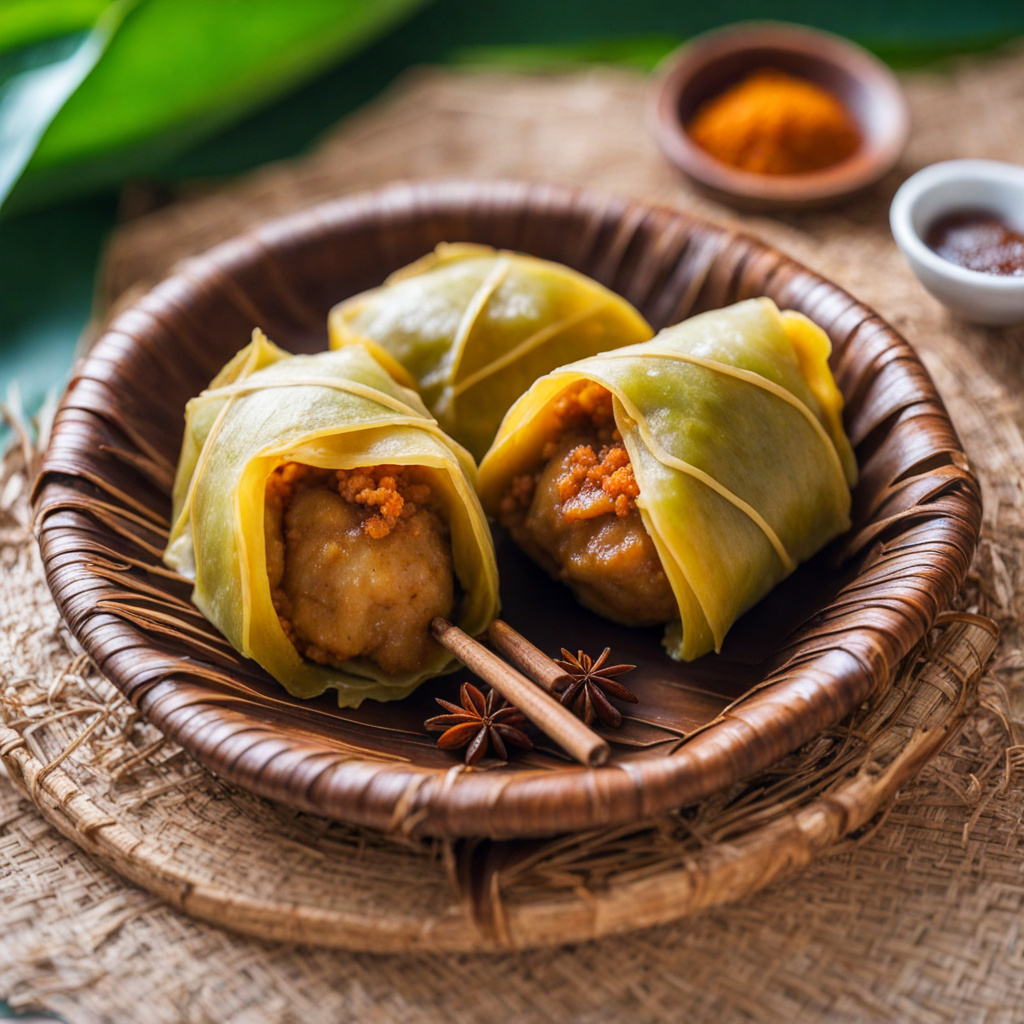Butter Bread
Butter bread, a beloved staple of Antiguan and Barbudan cuisine, is a simple yet delightful bread that has captured the hearts of locals and visitors alike. This traditional bread is characterized by its soft, fluffy texture and rich buttery flavor, making it a versatile accompaniment to a variety of meals. The history of butter bread can be traced back to the colonial era when European settlers brought their baking techniques to the Caribbean. Over time, this bread evolved, incorporating local ingredients and adaptations, ultimately becoming a cherished part of the culinary landscape in Antigua and Barbuda. The flavor profile of butter bread is one of its most appealing features. It boasts a subtle sweetness that complements its buttery richness, creating a comforting taste that is both satisfying and indulgent. The bread is typically slightly crispy on the outside, while the interior remains soft and airy, making it perfect for toasting or serving fresh. When paired with a pat of additional butter or a drizzle of honey, the experience becomes even more delightful, enhancing the overall taste and texture. Preparation of butter bread is a straightforward process that requires minimal ingredients and time. The key ingredients include all-purpose flour, sugar, yeast, salt, milk, and, of course, butter. To make the bread, one begins by mixing warm milk with sugar and yeast, allowing it to froth and activate. Next, flour and salt are gradually incorporated into the mixture, creating a soft dough. The dough is then kneaded until it becomes smooth and elastic, which is crucial
How It Became This Dish
Origin of Butter Bread Butter bread, a beloved staple in Antigua and Barbuda, has intriguing origins deeply intertwined with the island's colonial history and agricultural practices. The introduction of wheat flour to the Caribbean can be traced back to European colonization in the 17th and 18th centuries. As the islands became a hub for sugar production, the demand for bread and baked goods increased. The British colonizers brought with them their culinary traditions, which included various types of bread, and thus, the foundation for Antigua's butter bread was laid. The name 'butter bread' itself reflects both the ingredients and the preparation method that distinguishes this local favorite. Traditionally made with simple ingredients such as flour, sugar, yeast, and butter, the bread is known for its rich, soft texture and slightly sweet flavor. The use of butter, a luxury ingredient at the time, signified not only the influence of British baking techniques but also the adaptation of local tastes and available resources. \n Cultural Significance In Antigua and Barbuda, butter bread transcends mere sustenance; it plays a vital role in the social and cultural fabric of the islands. It is often associated with significant life events, including celebrations, religious gatherings, and family reunions. Butter bread is frequently served at breakfast or as a snack, often accompanied by cheese, honey, or jam, embodying a sense of camaraderie and warmth in communal dining experiences. The bread's soft, pillowy texture makes it a favorite among children, ensuring its place in the hearts of many generations. In homes across Antigua and Barbuda, the act of baking butter bread has become a cherished family tradition, passed down through generations. It is not uncommon for families to gather in the kitchen to prepare this delightful bread, reinforcing bonds and creating lasting memories. The recipe, while simple, allows for various adaptations, showcasing the creativity and resourcefulness of the Antiguan people. \n Development Over Time As the islands evolved through the 20th century, so too did butter bread. The post-World War II era saw a shift in dietary habits and the influence of globalization. Imported goods became more accessible, leading to a wider variety of ingredients and baking techniques being introduced to the local cuisine. However, butter bread remained a steadfast component of Antiguan culinary identity, adapting to new trends while retaining its traditional roots. In recent years, there has been a resurgence of interest in traditional foods, with a growing emphasis on local and sustainable ingredients. This has spurred a revival of interest in butter bread, with many Antiguans embracing artisanal methods of baking. Local bakeries and home bakers alike have begun experimenting with variations of the classic recipe, incorporating unique flavors such as nutmeg or coconut, while still honoring the original preparation methods. \n Butter Bread in Contemporary Culture Today, butter bread is not just a food item but a symbol of Antiguan heritage. The islands' tourism industry has also recognized its cultural significance, with many restaurants and hotels featuring butter bread on their menus as a way to introduce visitors to authentic Antiguan cuisine. Moreover, local festivals often celebrate traditional foods, including butter bread, allowing both locals and tourists to partake in this culinary experience. In addition to its presence in restaurants, butter bread has found a place in various culinary competitions and showcases, highlighting the skills of local bakers and the importance of traditional practices. These events foster a sense of pride in Antiguan culture and elevate the status of local cuisine, ensuring that butter bread remains a celebrated aspect of the islands' gastronomic landscape. \n Conclusion The enduring legacy of butter bread in Antigua and Barbuda is a testament to its adaptability and the rich tapestry of influences that have shaped it over the centuries. From its colonial roots to its place in contemporary culture, butter bread serves as a delicious reminder of the islands' history and the communal spirit that defines Antiguan life. Whether enjoyed at home, at a festive gathering, or as part of a culinary adventure for tourists, butter bread continues to unite people through its flavorful heritage. As the world becomes increasingly homogenized, the preservation of traditional foods like butter bread is vital for maintaining cultural identity. For many Antiguans, the taste of butter bread is more than just a flavor; it is a connection to their history, their families, and their way of life. The future of butter bread looks bright, with continued interest in local ingredients and sustainable practices, ensuring that this delectable bread will endure for generations to come.
You may like
Discover local flavors from Antigua And Barbuda







